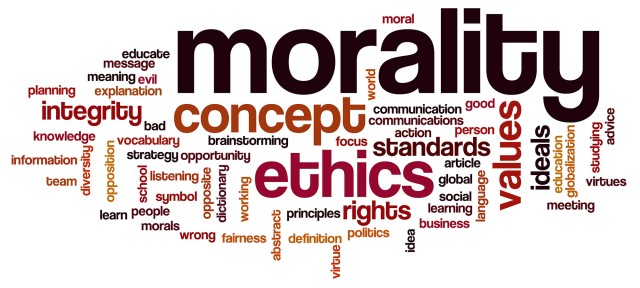Do we need the Bible to teach us about morality?
The Bible is one of many sources that can be used to teach us about morality. It is a religious text that contains many moral teachings and guidelines, such as the Ten Commandments, the Sermon on the Mount, and the Golden Rule.

Is Societies morals only based on the Bible?
It is important to note that morality is not solely based on religious teachings. There are many other secular sources of morality, including humanism, philosophy, and cultural traditions.
Different Religions
Different religions have different moral teachings, and even within a single religion, there can be a diversity of interpretations and beliefs about what is right and wrong.
Ultimately, it is up to each individual to determine their own moral code based on their own beliefs, values, and experiences.
While the Bible can be a helpful resource for some in this process, it is not the only source of moral guidance, and it is not necessary for everyone to rely on it for moral instruction.
Are there Examples in the Bible where a Groups Morals Caused Harm to People
There are several examples in the Bible where a group’s morals caused harm to others. One example can be found in the story of the Pharisees, a religious group in ancient Israel who were known for their strict adherence to the law and their emphasis on ritual purity. In the Gospels, the Pharisees are often depicted as opposing Jesus and his teachings.
One instance where the Pharisees’ moral beliefs caused harm to others is found in the story of the healing of the man with the withered hand (Mark 3:1-6). In this story, Jesus heals a man with a withered hand on the Sabbath, which was a violation of the Pharisees’ interpretation of the Sabbath law. The Pharisees saw this as a threat to their moral authority and criticized Jesus for healing on the Sabbath. This conflict ultimately led to the Pharisees plotting to kill Jesus.
The Good Samaritan
Another example can be found in the story of the Good Samaritan (Luke 10:25-37). In this parable, a man is beaten and robbed and left to die on the side of the road. Several religious leaders, including a priest and a Levite, pass by the man but do nothing to help him. Their moral beliefs and social status as religious leaders may have caused them to prioritize their own purity and social standing over helping someone in need, leading to harm to the man left on the side of the road.
These examples illustrate how moral beliefs and practices can sometimes cause harm to others, even when those beliefs are based on religious or ethical principles. It is important to continually examine our own moral beliefs and consider how they may impact others, and to strive to act with compassion and empathy towards those in need.
Do Society’s laws govern morality?
Society’s laws are intended to reflect and enforce a shared moral code. However, laws do not always perfectly align with morality. There are times when laws are immoral or unjust, such as when they discriminate against certain groups or violate basic human rights. Additionally, there may be actions that are not illegal but are still considered immoral by many people.
Furthermore, morality is a broader concept than just what is legal or illegal. There are many actions that may be legal but are still considered unethical or immoral by some individuals or groups. Conversely, there may be actions that are illegal but are not necessarily considered immoral by everyone.
In summary, while society’s laws do play a role in shaping and enforcing moral standards, they are not always a perfect reflection of morality, and morality encompasses a broader range of behaviors and values beyond what is simply legal or illegal.
